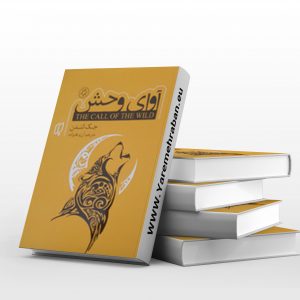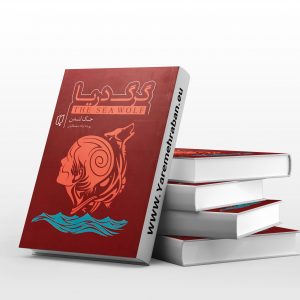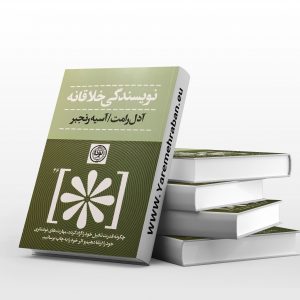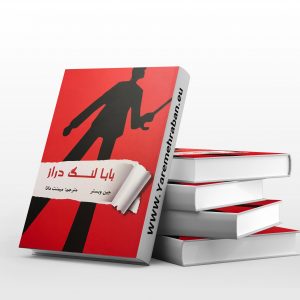Description
Introducing the book Beatrix by Shahin Najafi
Beatrix should be read as a brief introduction to the difficult dialogue about art, power and the future. Before starting this discussion, a relative agreement on the concept of “survival” must be reached, because without this agreement, dialogue is impossible. This is a minimal agreement on the most obvious common denominator of any being. Bitrex is the result of the efforts of an art seeker interested in science, and political citizenship, to come closer to explaining and understanding the possible rules of the game, by reading texts and the result of hours of discussion with different people.
Personal life of Shahin Najafi, author of the book Bitrex
Shahin Najafi was born in 1980 in Bandar Anzali and lived in Gilan. He loses his father when he is six years old.
As a teenager, he recited the Qur’an, then began composing poetry and songs, and from the age of eighteen learned to play the guitar in classical and flamenco styles with masters such as Sohrab Falak Angiz, Farzad Daneshmand, and Hamed Hamidi. He learned harmonium and solfeggio songs from Sangachini and Fereydoun Pourreza, and then began singing in rock and Spanish in Iran underground and collaborated with several different groups.
He was a sociology student and had expressed his views explicitly on campus, which led to his expulsion from the university for violating the norm.
In an interview with Radio Farda, Najafi stated that he is an atheist and does not ideologically believe in concepts such as Satan and God.

The beginning of the professional activity of Shahin Najafi, the author of the book Bitrex
Before emigrating to Germany, Shahin Najafi was the leader of an underground band in Iran for some time, but after the second performance, he was banned from acting. In Germany, he also led a group called Inan. He then joined Tapesh 2012. With his joining this group and performing his socio-political poems, Tapesh 2012 has been more and more welcomed by Persian-speaking audiences and media.
We are not men
Main article: We are not men (album)
Related article (s): We are not men (song)
On May 1, 2008, International Workers’ Day, Shahin Najafi released his first album, We Are Not Men, in collaboration with Tapesh 2012. This album was officially the beginning of his career in Persian rap music.
This album contains 10 songs, the most famous of which is We Are Not Men. This work was composed and produced by Tapesh Group 2012 and all its poems and performances were composed by Shahin Najafi.
Separation from Tapesh 2012
Shahin Najafi ended his collaboration with Tapesh Group in the beginning of 2009. There are various reasons for his separation from this group. The main reason is the release of the song “Our Side” on VOA without permission.
Anti Charisma
From the beginning of 2010, he formed a band called Anti Charisma. The group followed the styles of rock and blues and consisted of four people: Shahin Najafi, Babak Khazaei, Armin Motad and Pejman Afshari. The band performed their first rap and rock concerts at the February Persian Rap Festival in Sweden and were well received.
Naqi song
Original text: Naghi (song)
In 2012, Shahin Najafi released a song entitled “Naghi” with the theme of social and political criticism. The song was considered offensive by supporters of Shiite imams, and even Najafi was threatened with death (assassination) by Muslims. In this song, Najafi addresses Ali Naghi, the tenth Imam of the Shiites, and recounts his critical view of the current social and political situation in Iran. Also in the song “Naqi”, Najafi swears by Ali al-Naqi, the tenth Imam of the Shiites, on various issues, including sexual issues, and asks him to appear.
Charged with apostasy
Related article (s): Apostasy in Islam, Violation of the Rights of Religious Believers and Newcomers by the Islamic Republic of Iran and Violation of the Rights of Minorities by the Islamic Republic of Iran
The story began when some people appealed to Lotfatullah Safi Golpayegani regarding the people he called “those who dared to call Imam Naqi.” The text of the referendum is as follows: “Lying and 2) What is the sentence of these people?” And the answer that Safi Golpayegani gave to him was as follows: “If they had insulted and dared the Imam, they would have apostatized. And God knows.
On some government websites, including Fars News, Shahin Najafi has been declared an apostate based on this fatwa, while the date of the referendum was two weeks before Naqi’s song was released. Following this, a group of “soft war officers” and “Hezbollah activists” claimed, citing the fatwa, that they were preparing to kill Shahin Najafi.
Shahin Najafi told the BBC on May 12, 2012, following the reactions to his new song, that he did not intend to insult the Shiite Imams and only used the names of the Imams as an artistic-social work tool. He said that this fatwa does not include him and that some people in Iran have misused the fatwa of this authority for political purposes and to provoke the religious feelings of the people.
Nasser Makarem Shirazi, in response to his imitators who asked him: Has insulted. “Any insult to the great position of the infallible Imams and blatant insult to them, if done by a Muslim, will lead to apostasy,” he said.
Individuals and websites, including the Shiite Online website, have set a $ 100,000 prize, the Event website a $ 200,000 prize, and Hamed Zamani (a pop singer) a $ 100 million prize for killing Shahin Najafi.
On June 16, 2012, the German Parliament’s Human Rights Commission issued a statement expressing its support for Shahin Najafi. Simultaneously with this statement, another statement was published by German writers and artists in support of Shahin Najafi. The text of the statement was published on the website of the German Academy of Arts. The letter was signed by some famous cultural figures, including Nobel Prize-winning author and literary writer Gunter Grass, Austrian author and Nobel Prize-winning author Alfrieda Yelink, and others.
According to Shahin Najafi, after the news of his apostasy was published, he was a little scared, but after a while, with the support of the German police, he resumed his focus on composing the song. After a while, he released a song called “Standing to Die” which was about his own days.
1- Introducing the book on YouTube
2- Introducing the book in Aparat














Reviews
There are no reviews yet.